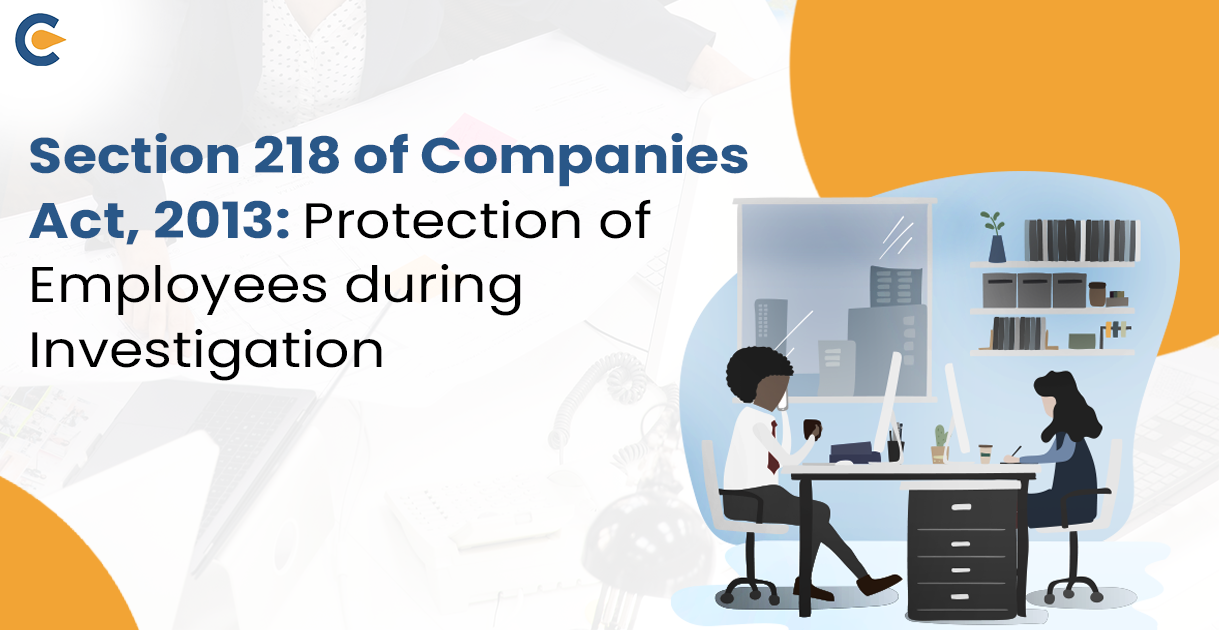On August 29, 2013, Parliament passed the Companies Act, 2013, and the President of India signed it. The Companies Act, 2013, was published in the Official Gazette on August 30, 2013. Furthermore, a few provisions or sections were added to the legislation by a notification issued on September 12, 2013. Furthermore, this statute applies throughout India, which implies it is applicable to the whole country.
The Companies Act of 1956 was superseded by the Indian Companies Act of 2013. The legislation of 2013 specifies detailed standards for all enterprises in the nation, whether public, private, listed, or unlisted. The Companies Act 2013 included various new provisions while deleting many of the provisions of the Companies Act 1956.
Among other things, the Companies Act of 2013 introduced new principles to help with enhanced disclosure, accountability, better board governance, and commercial facilitation. The notion of a “one-person company” was introduced in the Companies Act of 2013, however, it did not exist in the Companies Act of 1956. It further stated that there is no need for approval to convert a private limited company to a one-person corporation or vice versa.
In this blog post, we will understand the provisions of Section 10A of the Companies Act that are related to the commencement of business and penalties for non-compliance in detail.
Section 10A of Companies Act, 2013: Explained
Section 10A of the Companies Act reintroduces provisions from Section 149 of the same Act. Section 149, on the other hand, was exclusively applicable to public companies. The most recent modifications have barred any company with share capital that was formed after the Ordinance went into effect from starting a business or borrowing money unless the entity’s directors filed a declaration within 180 days of its formation. It must be submitted in a defined format and requires each subscriber to the memorandum to pay the agreed-upon value of the shares. Furthermore, the entity’s registered office should be confirmed by filing all required returns with the Registrar.
Failure to comply with Section 10A of the Companies Act may result in the Registrar of Companies striking out the company’s name.
- A company constituted after the commencement of the Companies (Amendment) Act, 2019 and possessing a share capital must not conduct any business or exercise any borrowing powers unless and until the following conditions are met:
- A declaration is filed with the Registrar by a director within one hundred and eighty days of the company’s incorporation date, in such form and verified in such manner as may be prescribed, that each subscriber to the memorandum has paid the agreed amount for the shares taken by him on the date of making of such declaration; and
- The company has submitted a verification of its registered office with the Registrar as per sub–section (2) of Section 12.
Explanation – Any company having a share capital that is commencing its business after the Amendment Act of 2019 can conduct its business or exercise any borrowing power only after the director of the company submits a declaration to the registrar within 180 days from the date of company incorporation stating that each and every person who has subscribed the memorandum has duly paid the value of shares agreed by the company. Moreover, the commencement can start only when the verification of the company’s registered office has been duly filed with the registrar as per Section 12(2).
- If any failure to comply with the requirements of this section occurs, the company shall be liable for the payment of penalty of fifty thousand rupees, and every officer in default shall be liable for the payment of penalty of one thousand rupees for each day such failure continues, not to exceed one lakh rupees.
Explanation –Section 10A of the Companies Act, Sub–section (2) specifically talks about the penalty for non-compliance of the provisions of sub–section (1). If a company fails to comply with the provisions of sub–section (1) of Section 10A of the Companies Act, it will face a penalty of up to INR 50,000. Furthermore, each official in the organization implicated in the non-compliance will be fined INR 1,000 for each day the default persists. This sum, however, should not exceed INR 1 Lakh.
- If a company has not filed any declaration with the Registrar under clause (1)(a) within one hundred and eighty days after the date on which the company has been incorporated and the Registrar has a reasonable cause to believe that the company does not carry on any operations or business, he may, without prejudice to the provisions of sub-section (2), initiate action to remove the name of the company from the register of companies under Chapter XVIII.
Explanation – Section 10A of the Companies Act, Sub–section (3) specifically talks about other consequences that the company might face for non-compliance with the provisions of sub-section (1). As a result, if the required declaration is not filed with the Registrar of Companies by the Director of a company within 180 days of the company’s incorporation date, the Registrar of Companies believes that this particular company is not carrying out any operations or business. Therefore, the Registrar of Companies has the ability to exclude the company’s name from the Register of Companies.
Form INC-20A & Form INC-22
Section 10A of the Companies Act also mentions about filing the Form INC-20A and INC-22. Let’s understand about these forms:
- Before creating a business, one must make sure that the registered office of the firm is created by submitting an e-form INC-22 to MCA. We submitted a request for verification of the registered office in your case at the time of incorporation. So, we don’t need to file any paperwork.
- Before submitting the form, you must verify that each subscriber has made the payment they agreed to make for the subscription of shares. In the electronic form INC-20A, receipts for subscription payments must be attached. You should provide a copy of the bank statement that shows the receipt for Rs. 25 lakh, in my opinion.
- Before submitting the form, one must confirm that the permissions are in place if the company is regulated (by any authority). Your firm will be subject to SEBI regulation because it is involved in investment counselling. Before submitting the paperwork, we must make sure the firm registers with SEBI as an Investment Adviser. The paperwork must include the registration certificate that was obtained from SEBI.
Note: Before submitting form INC-20A, form INC-22 must be filed in order to confirm the registered office. Before submitting form INC-20A, all regulatory clearances that are necessary must also be in place. The paperwork must include both the registration number and the date of approval.
Essentials for Filing Form INC 20A
The following items are necessary to submit Form INR 20A.
- The Company must receive payment from the Subscriber for the purchased shares.
- Before starting operation, the Company must secure the necessary government approvals. This also applies to commercial operations that are solely governed by other sectoral authorities like the IRDA and SEBI.
Companies (Amendment) Bill, 2019 Pertaining to Section 10A of the Companies Act, 2013
The Companies (Amendment) Bill, 2019, was passed with the goal of increasing accountability and improving enforcement in order to promote corporate governance and compliance management standards in the business sector. This bill has brought several new insertions and modifications. Section 10A of the Companies Act is the most recent addition to the Companies Act of 2013 brought by the Companies (Amendment) Bill, 2019. Moreover, Section 10A of the Companies Act includes provisions for commencement and non-compliance with the provisions of this section applies only to those companies who will be starting the commencement of their business after the enactment of Amendment Bill, 2019.
Conclusion
Section 10A of the Companies Act, 2013 which states the requirement of submitting a declaration to the registrar before commencement of business was not present originally in the Companies Act of 2013. This provision was added through the Amendment of 2019, and now no company having a share capital can commence its business until the director submits a declaration to the ROC stating that all the subscribers of the Memorandum have the number of shares as agreed. This has been welcomed as an important component of the new Act, one that will make doing business simpler. Moreover, this sectionalso includes the penalty and other consequences that the companies may incur if they do not follow the procedure as mentioned in Section 10A (1).
Read Our Article: Section 52 Of Companies Act, 2013










